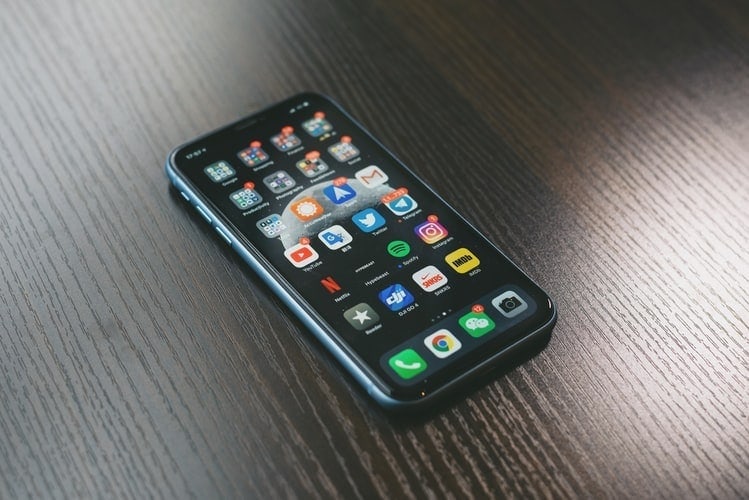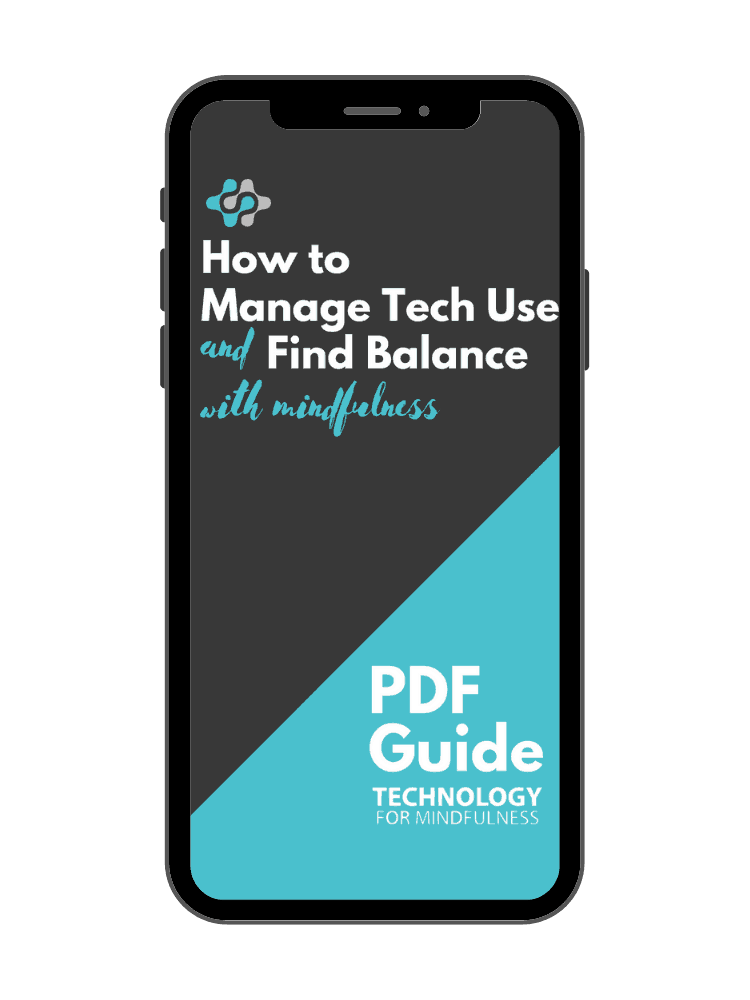If you’ve ever been concerned about the psychological impact of our society’s increasing obsession with technology, Dr. Larry Rosen has studied it from every angle over the past 30 years.
You might be wondering what there was to study back in the late 1980s! Even then, as computers made their way into homes and workplaces, Rosen began to recognize and study signs of “technophobia.” In fact, his first publication TechnoStress: Coping with Technology @Work @Home @Play was published in 1997.
But with the exponential growth of personal technology like iPhones and social media, fear has been replaced with anxiety and distraction due to our constant connectedness. That’s been the focus of his research over the past decade.
Robert Plotkin had an opportunity to talk with Dr. Rosen on episode 23 of the Technology for Mindfulness podcast about what he’s learned from his years of research and how the fields of neuroscience and psychology can help us engage with technology in a healthy way. Here are three key insights we gleaned from their conversation on the psychology of technology.
How Our Tech-Focused Society Affects Us Psychologically
Dr. Rosen pointed out that there’s been a dramatic shift in the way we view the world over the past ten years. We’ve experienced three game-changers:
- The invention of the internet, which gave us the power to search for anything
- The development of smartphones, which allowed us to carry our computers everywhere
- The introduction of social media, which changed how we communicate
So, what are some of the issues with these advancements from a psychological point of view?
Diminished Sense of Self
The common phrase, “pics or it didn’t happen,” implies that experiences aren’t valid unless they’ve been documented and shared. So, we hold up the phone and record, unconsciously filtering our experiences to make them more palatable to our “audience.” Then, we wait to see the response. Our sense of self becomes dependent on the opinions of others.
Social Comparison
While likes and comments can give us a little dopamine rush, they can also give us pain. Everyone knows on some level that people are only sharing their best versions online – the photoshopped picture, the fancy vacation, the new car. But sometimes we forget. Constantly scrolling through the best parts of people’s lives can create disappointment and sadness. Social comparison has always been around, but social media has magnified its effects.
Eroding Interpersonal Skills
As humans, our goal is to connect with others. That’s why social media has such a strong pull. But prior to things like Friendster and Myspace, these connections occurred one-on-one. Now you’re talking one-to-many, and it changes the dynamic.
As adults, we begin to lose some of our social graces, which causes unnecessary conflict and miscommunication. But it’s especially hard for children. They’re learning to communicate through technology at the same time they should be gaining experience with body language and the nuances of conversation. We’ve yet to see the implications of this long term.
Impaired Introspection
In our world of distraction, it becomes harder to process our thoughts as deeply. We’ve replaced every moment of boredom with our phones, which leaves no space for making connections, brainstorming, or inspiration. That’s part of what makes us human. It’s the spark of creativity. Dr. Rosen says, “You can’t process at a light level and expect to live a fulfilling life.”
But a discussion about the psychology of technology wouldn’t be complete without mentioning FOMO (fear of missing out). This is a real problem that many people experience, even though the term is used rather casually. Let’s talk about that in more depth.

What Neuroscience Tells Us About FOMO
Though the acronym AOMO is not as hip or memorable, Dr. Rosen emphasizes that FOMO is really a form of anxiety. So, what causes FOMO?
The Roots of FOMO
Every notification could be someone talking about you. Someone needs you or has “approved” of something you did or said. From the brain’s perspective, this is tantalizing. Even when you know better, and you don’t check it, your brain is still thinking about it. The distraction is still there.
The more this anxiety creeps up, the more you want to check your phone to relieve it. And with the constant stream of information, you never feel caught up. It’s a feedback loop you can’t escape.
Increasing FOMO
In a recent study, Dr. Rosen saw signs that our anxiety is growing. In a recent study, he added an app on his students’ phones to see how often they unlocked their phone and how long they used it each day. He noted these were working adults, mostly in their late 20s.
- In 2016, they unlocked their phones 56 times a day for 220 minutes total for about 3 minutes at a time.
- In 2017, the unlocked their phones 50 times a day, 262 minutes total for about 5 minutes at a time.
He theorized that with the growth of new social media platforms like Instagram and Snapchat, students had more websites to monitor. More notifications to check. And, as a result, more opportunities for FOMO.
A Practical Exercise
To break the habit of constantly checking your phone, Dr. Rosen feels that “technology fasts” don’t work very well because they’re not getting to the root of the problem. When you come back from your fast, you’re faced with a mountain of notifications and the process begins again.
Instead, he recommends a behavioral approach. Set a timer for a period of time that feels comfortable (like 15 minutes). When the alarm goes off, allow yourself to check your phone for two minutes. The goal is to slowly extend the period of time between checks.
Rather than allowing your brain’s biochemistry to unconsciously guide you, use the alarm. You’re essentially deciding in advance when to be “mindless.”
He cautions that it will likely feel harder before it gets better. Don’t judge yourself too harshly. You have to fight through your anxiety and relearn delayed gratification.

How to Restore Balance Between Our “Real” and “Digital” Lives
Dr. Rosen likens our relationship to technology to a pendulum. We’re still swinging upward, infatuated with the newness and wonder of all the things technology can do. After all, it happened so fast. But there will come a time when we turn back to a more balanced way of communicating.
His book, The Distracted Mind: Ancient Brains in a High-Tech World, offers practical strategies, backed by science, to fight distraction. For those who are ready, the methods might seem surprising in their simplicity. He suggests exercise, spending time in nature, and mindfulness meditation. In other words, time-tested practices for greater focus and productivity. Just ten minutes a day can help your brain slow down and resist instant gratification, even the allure of a red notification button.
Our experiential course Tap into Mindfulness is an excellent way to get started. It’s a transformational four-week audio course with workbooks to help you on the path to mindful interaction with technology. Our founder, Robert Plotkin, developed the exercises to specifically address the anxiety (or FOMO) associated with smartphones.
Want to learn more about the Psychology of Technology?
Dr. Rosen is a prolific researcher and writer. Over the past 30 years, Dr. Rosen and his colleagues have examined reactions to technology among more than 70,000 people in the United States and in 22 other countries. He has written seven books about the psychology of technology and writes a column for the newspaper The National Psychologist and regular blog posts for the magazine Psychology Today and the Huffington Post. For more:
- Listen to the podcast episode
- Visit Dr. Larry Rosen’s website
- Follow him on Twitter

